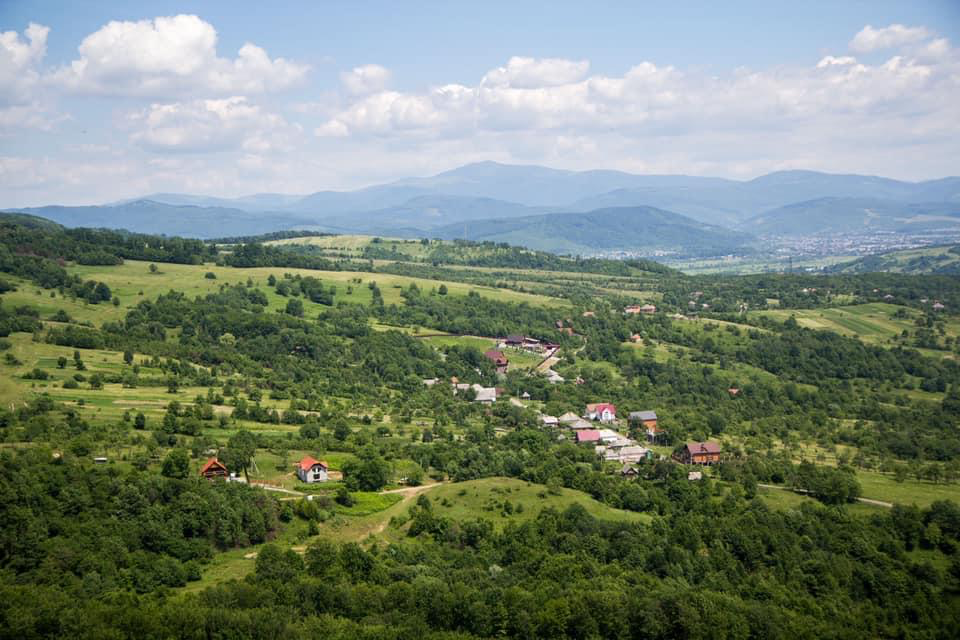Countless hours of genealogical research over the years led me to so many dead ends, but I have finally discovered – via Facebook of all places – that multiple place names that were used across various documents are actually all references to THE SAME VILLAGE, which was once part of Hungary, then Czechoslovakia, and now Ukraine.
This is where my dad’s maternal grandmother Helena (Ilona) Straus came from, when she arrived to Ellis Island – and eventually Chicago – in 1911. I learned recently from my uncle that her parents wanted her to marry someone whom she did not want to marry, and so she fled to America.
In Chicago, she married Joseph Tikal, a Slovak who left a neighboring Transcarpathian village for Chicago seven years earlier, in 1904.
English translations below are via Facebook.
*
#історіяСвалява #Свалявськийрайон
Ervindorf - Neudorf with New Selo (New Suskovo), гадки: 1856: Ervinfalu, 1882: Ervinfalva, Szuszkó újfalu, 1895: Szuszkó-Ujfalu, 1910: Szuskóújfalu, Erwinsdorf, 1913: Szuszkóújfalu, 1925: Susko Nové Selo, Novo Selo, 1930: Selo Nové, 1944: Szuszkóújfalu, Сусково
The history of the village begins from 1850. His other name is New Suskovo, and at the times of the prosperity of the Austrian community, the settlement was called Neudorf and Erwinsdorf.
Because it was Erwin Schoenborn in 1856 that brought 12 families of colonists from German lands of the Czech Republic here to work in the forest. As Roman Catholics, the villagers belonged to the Drachyn parish. The immigrants held onto their language, their faith.
After World War II, many Germans were repressed. The church is on fire. Her remains were dismantled in the second half of the 1970s. A wooden cross was installed at the site of the church.
The Roman Catholic Church of St. Mary Wendelina in the village. New Village. A piece of historical knowledge. Anton Muller. Carpathian Ruthenia. Throwback (script). Ludwigsburg, 1954, s. 139-140.
Recorded in Novi Sela 1991 from the words of Maria Venk (1905 r. n)
Source: https://www.facebook.com/groups/972655726636505/permalink/1306109296624478/
*
#MissingVillagesTranscarpathia - villages that no longer exist
301. Ervindorf
Ervindorf is a former village in Ukraine, in the Transcarpathian region.
United with the village of Suskovo
Сегадки: 1856: Ervinfalu, 1882: Ervinfalva, Suszkó new village, 1895: Szuszkó-Ujfalu, 1910: Szuskóújfalu, Erwinsdorf, 1913: Szzkóújfamu, 1925: Susko Nové Selo, Novo Selo, 1930: Selo Nové, 1944: Szusko New Village, Сусково
Source: https://m.facebook.com/story.php?story_fbid=pfbid0ELT6xJap9E7QYZUAs5GfnCUoniNBCeJHqJ8Ux9sYzkSTeD1XXJP2DiuU12KejtvUl&id=100003579045232
*
Photo of Helena Straus and Josef Tikal with their children in Chicago. My grandma is on the far left.



